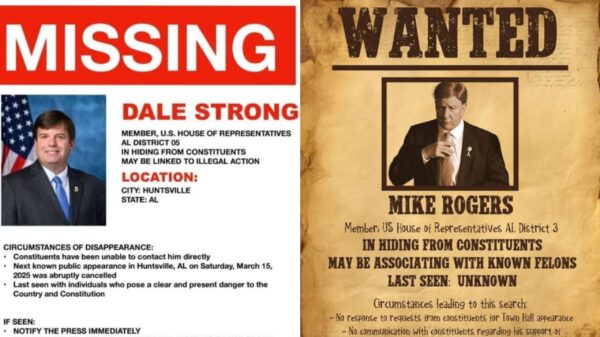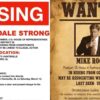By Brandon Moseley
Alabama Political Reporter
Over 180 economists, including several working for Alabama institutions of Higher Learning warn Congress of severe economic repercussions if the nation falls off of the fiscal cliff and tax rates are raised during this very weak economic recovery.
Dr. Keith Malone with the University of North Alabama, Dr. Stephen Mennemeyer with the University of Alabama in Birmingham, Dr. Daniel Smith with Troy University, Dr. Michael Morrisey at the University of Alabama, and Dr. Andrew P. Morriss with the University of Alabama Law School all signed the letter to the U.S. Congress urging Congress to cut spending and not to raise taxes substantially during the recovery.
The economists from all over the country wrote,
“As the nation approaches the so-called “fiscal cliff,” we, the undersigned economists, urge Congress to carefully consider the relative merits of tax increases and spending restraint. Increasing taxes would likely slow or reverse our nation’s fragile economic recovery and undermine long-term growth. Restraining the growth of expenditures, however, would help stabilize the government’s fiscal imbalance and create a more conducive environment for robust expansion.”
The group of academics continues, “Some in Congress have advocated allowing the 2001 and 2003 taxpayer relief laws to expire for some or all taxpayers. Such an action would have a significant, negative impact on the economy. Low taxes can have a constructive economic effect by keeping money in the private sector, where it is far more likely to be utilized for efficient purposes. By contrast, raising taxes would divert resources into the relatively inefficient public sector, thereby curbing potential job creation and economic growth. This effect would be even more pronounced during a persistent slump. In particular, Congress should avoid raising marginal tax rates on income and taxes on investment, such as capital gains and dividends taxes. These types of taxes most directly and meaningfully affect job creation.”
The economists continue, “Additionally, lawmakers must resist other destructive proposals that would boost effective tax burdens, such as curtailing itemized deductions for higher earners or imposing discriminatory taxes on energy or other industries. Such policies are merely revenue-raising ploys when executed outside the context of comprehensive tax reform that includes correspondingly lower marginal rates. And like other tax increases, they would serve as inadequate substitutes to much-needed spending restraint.
While some Members of Congress are concerned about the short-term impacts of slowing the growth of federal expenditures, they must uphold their commitment to the American people to address the alarming trajectory of U.S. spending and borrowing.
There are more tangible benefits to consider as well: research has shown that spending restraint is superior to tax increases for both deficit reduction and long-term economic vitality. This has proven true in many other developed nations that have implemented fiscal adjustments.”
The group concludes, “To best foster a strong economy, Congress should ultimately create a simpler system of taxation with a broader base and low rates on income and investment. Simultaneously, it should prioritize government programs and pursue entitlement reforms that bring the budget to sustainable balance. Individuals and businesses are depending on — and deserve — greater certainty in policy making that affects their everyday financial decisions.”
Meanwhile President Barack H. Obama continues to demand that Congress pass his tax increase proposals and recently predicted in a TV interview that House Republicans will eventually cave in to his demands.



















































